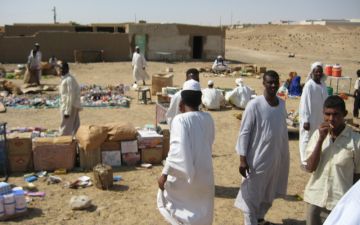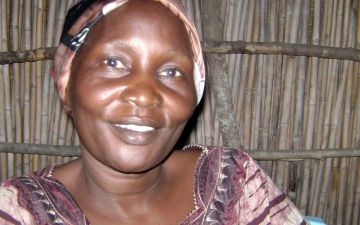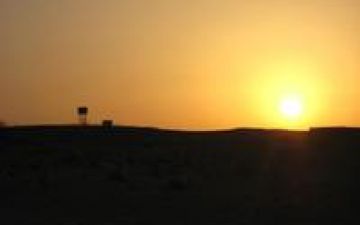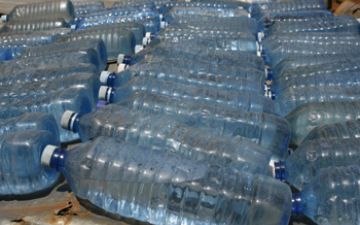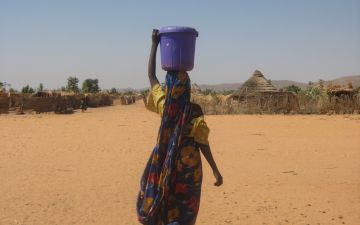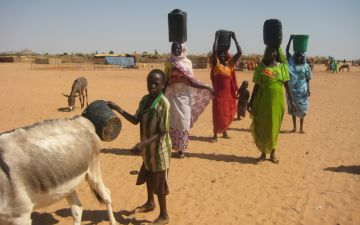Sudan: "Because we are peaceful, they neglect us"
Beads of sweat run down Rajaa Tag's face, as she crouches in the dark mud room that serves as her bathroom in a small village in northern Sudan. Her young son is screaming wildly - he hates being washed. She holds the small, malnourished boy in one hand, resting him against her hip, and washes him with the other. "It's ok. It's ok," she insists to him gently.
